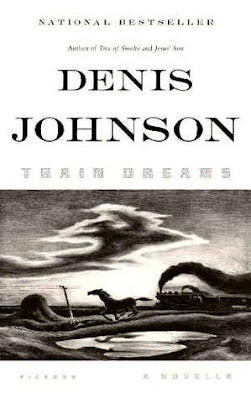Back in 2012 the Pulitzer Prize committee did not select a winner from the three finalists. It sent shock waves among the whole national book community. How dare they not select a book? Book sellers were counting on the increased sales that come when a winner is announced. The Pulitzer Jury members were outraged. They had been reading books all year and were solidly behind the three finalists, believing any of them would make a tremendous choice. The Pulitzer Prize committee doesn't tell what process they use to select their books, how the voting went, or, in this case, why they opted to not select any of the books. It wasn't the first time the Pulitzer Committee decided to NOT name a winner, but it was the first time in over forty years, harkening back to the 1970s, which made it all the more shocking. After reading this article, "Do Book Prizes Owe Us a Winner Every Year? A Deep Dive Into the Pulitzer Prize Controversy of 2012," I decided I would read one of the finalists to fill out my reading of the 21st Century winners.
The three finalists in question, all published in 2011, were Train Dreams by Denis Johnson, Swamplandia! by Karen Russell, and The Pale King by David Foster Wallace, published posthumously. Swamplandia! sounded a little too much to me. Too crazy, too original, too odd. David Wallace Foster committed suicide in 2008. The Pale King was the novel he was working on at the time of his death. His editor was able to pull together the pieces and publish it. But it was unfinished.
“The Pale King” was, of course, unfinished, but so are a number of great works of art. We have only fragments of Sappho’s poetry. Chaucer was a little more than halfway through “The Canterbury Tales” when he died... It seemed, too, that a Pulitzer for “The Pale King” would be, by implication, an acknowledgement not only of Wallace but also of Michael Pietsch, the editor. As a novelist, I well know how much difference an editor can make—and there’s no major prize given to editors. The best an editor can hope for is mention on the acknowledgments page, when, sometimes, that editor has literally rescued the book.
-Michael Cunningham, “Letter from the Pulitzer Fiction Jury: What Really Happened This Year” Part 2
I found myself dreading the idea of reading The Pale King based on its summary. Fortunately I had one more option, Train Dreams by Denis Johnson. The Wikipedia summary
for this book captures it pretty perfectly: “The novella details the
life of Robert Grainier, an American railroad laborer, who lives a life
of hermitage until he marries and has a daughter, only to lose both wife
and child in a forest fire, and sink into isolation again.” A booktuber described the book, weighing in at only 116 pages as a "short sharp shock."
I opted for the audiobook version of Train Dreams and was immediately rewarded for my choice by discovering that the narrator was Will Patton. He is one of my very favorite book narrators and is perfect to read about an Old West character with his raspy, gravely voice. The opening scene involves Robert Grainier and other other men torturing a Chinese laborer, attempting to drag him to his death. When the man escapes, Robert is sure he was cursed by this experience and later in life reflects with shame upon it. When Robert wasn't working on the railroad, he would often make enough money to live on by logging. He also was very handy and later became a delivery man, running a team of old horses with his wagon around the area where he lived in the Idaho Panhandle.
As I started listening I immediately felt an affinity to both the story and to the setting. My maternal grandfather attempted to homestead a dusty plot of land in Oregon in the early 1920s, not too far from Idaho. He, like many men of the era, was good at everything. Though his homesteading dream was not completed, he did ultimately build two different homes on his own while and his job was building roads as a civil engineer. My paternal grandfather helped build the Panama Canal and the Bonneville Dam. He started out at a carpenter's assistant and moved up to be the supervisor. Our nation was built on the strength and toughness of men like my grandfathers and like Robert Grainier. My husband put himself through college by working as a logger for several summers and falls in between terms. His stories of his experiences logging in the woods paralleled the stories of Robert Grainier. There is an old man on the logging team, Arn Peeples who is a humorous old coot who is always entertaining the crew...
"[Train Dreams] was magnificently written, stylistically innovative, and—in
its exhilarating, magical depiction of ordinary life in the much
romanticized Wild West—a profoundly American book" (Michael Cunningham). And keep in mind the Pulitzer’s mandate that the fiction prize should be
awarded to a work “by an American author, preferably dealing with
American life.” Homesteading, railroads, logging, forest fires, and small-time rural life, what could be more American than Old West stories?
So Train Dreams didn't win the Pulitzer Prize in 2012, but I encourage you to read it anyway. It is truly a "short sharp shock" of a story and I loved it.



No comments:
Post a Comment
I look forward to your comments and interactions! Join in the conversation.